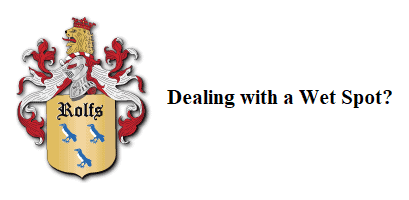Commercial Insurance: Essential for Businesses of All Sizes
Commercial insurance is an essential tool for businesses of all sizes. It provides protection against a variety of risks and helps companies recover from financial losses in case of accidents, natural disasters, lawsuits, and other unexpected events. Whether you own a small business or manage a large corporation, having the right insurance coverage is critical to your success.
There are several types of commercial insurance that you should consider when creating your insurance plan. In this blog post, we’ll go over some of the most common types of commercial insurance, explain what they cover, and highlight why they are important. Businesses should review their insurance coverage annually since coverage terms can vary depending on many factors. Standard policy coverage terms serve as the basis for the following examples.
Property Insurance
Property insurance is designed to protect your business’s physical assets, such as buildings, equipment, inventory, and other property. This type of insurance typically covers losses due to fire, theft, vandalism, natural disasters, and other events. Property insurance can also cover the cost of rebuilding or repairing your property if it is damaged.
Liability Insurance
Liability insurance protects your business from financial losses in case you are sued for damages or injuries caused by your products, services, or operations. This type of insurance covers the cost of defending against lawsuits, as well as any settlements or judgments that may be awarded. Liability insurance is essential for businesses of all sizes, as lawsuits can be costly and disruptive.
Business Interruption Insurance
Business interruption insurance covers the loss of income that your business may suffer due to a temporary shutdown caused by an insured event, such as a fire, natural disaster, or other unforeseen event. This type of insurance can help keep your business running by covering expenses such as rent, employee salaries, and other operating costs while your business is closed.
Workers’ Compensation Insurance
Workers’ compensation insurance is required by law in many countries, including the United States. This type of insurance provides financial and medical benefits to employees who are injured or become ill as a result of their job. Workers’ compensation insurance covers the cost of medical treatment, rehabilitation, and lost wages for affected employees.
Professional Liability Insurance
Professional liability insurance, also known as errors and omissions insurance, protects your business against lawsuits related to professional services. This type of insurance is important for businesses that provide professional services, such as consultants, accountants, and lawyers. Professional liability insurance covers the cost of defending against lawsuits, as well as any settlements or judgments that may be awarded.
Product Liability Insurance
Product liability insurance protects your business against lawsuits related to the products you sell. This type of insurance covers the cost of defending against lawsuits, as well as any settlements or judgments that may be awarded. Product liability insurance is especially important for businesses that manufacture, distribute, or sell products, as lawsuits related to products can be costly and disruptive.
Cyber Liability Insurance
Cyber liability insurance provides protection against losses due to cyber attacks, data breaches, and other types of cybercrime. This type of insurance covers the cost of responding to a cyber attack, as well as the cost of notifying affected customers and repairing any damage to your business’s reputation. With the increasing number of cyber attacks, cyber liability insurance has become an essential type of insurance for businesses of all sizes.
Transportation Insurance
Transportation insurance protects your business against losses related to the transportation of goods and products. This type of insurance covers the cost of replacing lost or damaged goods, as well as any legal costs associated with transporting the goods. Transportation insurance is important for businesses that rely on the transportation of goods to deliver products to customers.
In conclusion, it’s important for businesses of all sizes to have the right insurance coverage. Without it, they may be exposed to significant financial risks that can jeopardize their ability to continue operating. However, with the right insurance coverage in place, businesses can protect themselves and their assets, and have peace of mind knowing that they are prepared for unexpected events. It’s also important for businesses to work with experienced insurance professionals who can help them understand their coverage options and make informed decisions about their insurance needs. By taking a proactive approach to insurance, businesses can help ensure their long-term success and financial stability.
This article contains information which was generated by artificial intelligence and has been professionally reviewed before release to the public.
Proudly powered by WordPress






